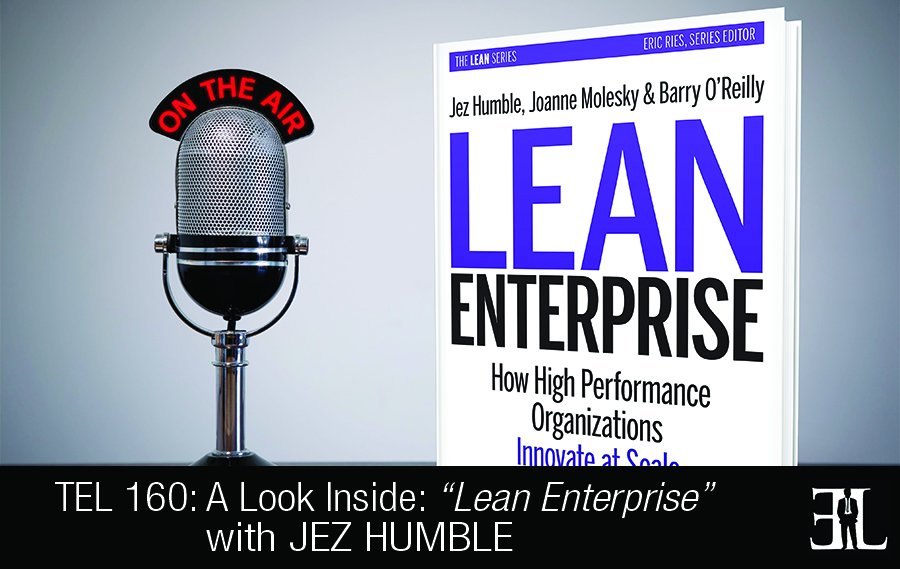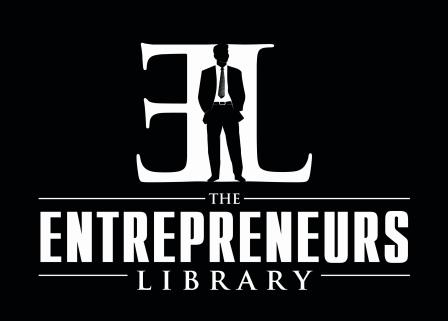A Preview of Lean Enterprise with Jez Humble

A summary of things you should know about Lean Enterprise according to Jez Humble:
Introduction
In this episode Jez Humble takes a deep dive into his book, Lean Enterprise where he uncovers how high performing organizations are able to innovate at scale.
In his book Humble sifts through case studies, principles, and patterns of very successful well-known companies providing you with an action guide to help you rethink how to run your business. The goal of the book is to teach you what it takes to implement the methodologies he presents, manage large-scale projects, create a non-traditional management style, and accelerate innovation.
This book is perfect for entrepreneurs who run a well-established organization that is having trouble adapting to changing market conditions and need a fast, innovative approach to scaling up.
The Book’s Unique Quality (3:28)
I don’t think anyone has written a book that talk about how to transform enterprises that need to be able to win creating digital products in this environment where you have short product cycles. There are books about how to change culture, there are books about leadership, but there is no book that really ties all these things together in the context of building digital products for large enterprises.
The Best Way To Engage (4:15)
This book is very dense and the first two chapters need to be read straight through. The rest of the book you can dip in and out where needed.
The Reader’s Takeaway (15:37)
For me the real epiphany of the book is this idea of taking a scientific method and adopting it for product development and for process improvement.
A Deep Dive Into The Book (5:19)
We start off by talking about the fact that lean enterprise is the result of culture. Even though the book is about how to work in a domain of technology the point of technology is really to enable humans to collaborate more effectively and more rapidly. In an enterprise context it becomes really difficult because you got a large number of people with a wide variety of backgrounds who all have to work together in order to achieve a common purpose. And the question is how do we do that rapidly at scale? The answer to that comes from military doctrine. The book is primarily about how you create alignment at scale, how you enable everyone in the organization to make the best decision from the organizational point of view despite their limited knowledge.
The second chapter dives into the product cycle and the product development cycle and there are a number of well named models for the enterprise portfolio. This is increasingly important in the modern world where product development cycles are so short.
Part two of the book describes how to work in the explore domain where exploring a number of ideas knowing that most of them won’t be successful. This explores how to adopt the lean startup methodology in an enterprise context.
Part three of the book describes how to work in the domain where you have validated products and you need to actually exploit it and develop it at scale. The key part of exploiting is actually around driving down cost, improving quality, and improving value to customers and that demands a completely different approach. For that we need to pursue process improvement which means enabling the people doing the work to actually try out new ideas to experiment new ideas in terms of how to increase quality.
There is a piece on engineering practices because engineering practices are poorly understood. Most people are going into management in large companies not necessarily to really understanding how to work in the digital domain and how to build products where software is a competitive advantage. And so we spend a bunch of time discussing how to do that and how to take an experimental approach through product development.
The last part of the book is about how to create a culture of innovation. As an enterprise you can’t afford to hire the top of market people who have exactly the skills and behaviors that you want. You have to invest in developing your people so there is a whole section on growing a culture of innovation rather than taking shortcuts. We talk about financial management and how you can do budgeting, how to do IT in a way that creates a competitive advantage rather than being a cost center, and how to get started using a case study from the UK government digital service.
NOTE: That was just a summary. To get the full deep dive, play the audio clip at 05:19
Notable Quotes From The Book (16:47)
“All things are subject to interpretation whichever interpretation prevails at the given time is a function of power and not truth.” –Unknown
The Credibility/Inspiration Of The Author (0:32)
I am a Vice President at Chef, a lecturer at UC Berkeley, and before Lean Enterprise I wrote Continuous Delivery. My background is in software engineering and I’ve worked in multiple industries, in multiple companies, helping organizations get better at delivering high quality valuable software products.
Lean Enterprise is about how you create organizations that are able to work in short development cycles, build products rapidly, and get feedback. And that requires us to change the way we think about portfolio management, financial management, culture, and pretty much everything else. All these things need to be a bit different in order to compete in this world where we have these very short product cycles.
Other Books Recommended By The Author (19:10)
Toyota Kata by Mike Rother
More Information About This Book and The Author
Buy Lean Enterprise by Jez Humble on Amazon today
Visit ContinuousDelivery.com to learn more about Jez and his books
Follow Jez Humble on Twitter
More Information About This Episode
Download the full transcript here (coming soon)
Listen on iTunes, Stitcher , and SoundCloud
Related books:
Scaling Up by Verne Harnish
Exponential Organization by Salim Ismail
Fail Fast or Win Big by Bernhard Schroeder
What did you like and not like about this episode? Fill out this one minute survey here.
 The Entrepreneurs Library
The Entrepreneurs Library














